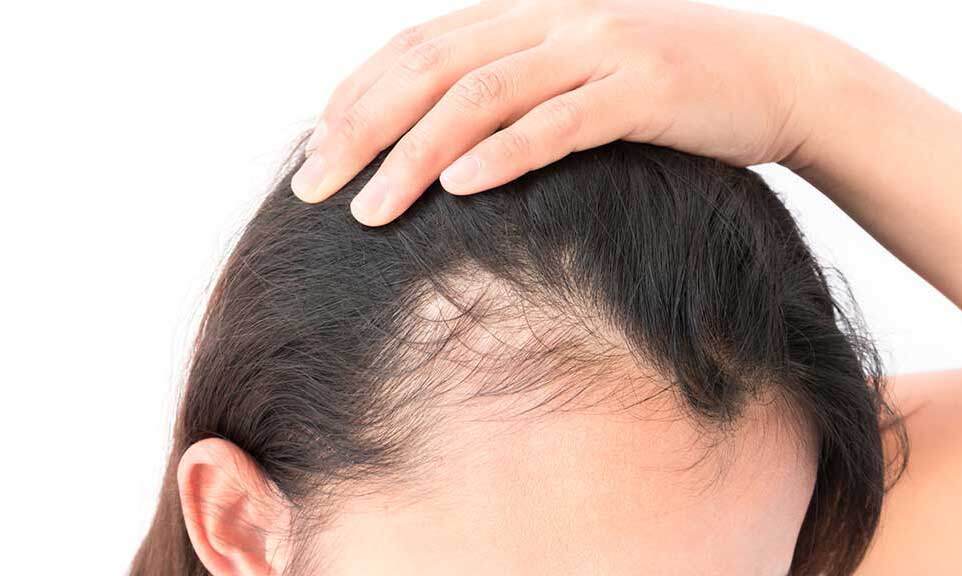
Vitamins for Hair Loss – A Guide to Hair Health at Any Age
Hair loss can be a frustrating experience at any age because it can affect not only our appearance but also our confidence. Whether it’s due to genetics, hormonal changes, stress or nutritional deficiencies, hair loss can impact anyone. Fortunately, there are ways to manage the problem by adopting an approach that includes proper nutrition and vitamins for hair loss. In this blog, we’ll explore the reasons behind hair loss for different age groups, discuss how vitamins contribute to hair growth and health, and offer practical solutions.
Causes of Hair Loss Across Different Age Groups
Hair Loss When You’re Younger
For those in their twenties and thirties, stress, lifestyle factors and hormonal imbalances are often key contributors to hair loss. The pressure of modern living, combined with a poor diet, often leads to thinning hair and weakened follicles. Women might experience hair thinning due to hormonal shifts (such as immediately after pregnancy or birth control changes), while men may experience early stages of male pattern baldness.
Hair Loss When You’re Older
As we age, the natural process of hormonal changes, particularly the reduction of oestrogen in women and testosterone in men, plays a significant role in hair thinning. On top of that, older people are more likely to experience vitamin deficiencies, slower cell turnover, and other health issues (like thyroid disorders and autoimmune diseases), which can also contribute to weakened hair follicles.
The Role of Vitamins for Hair Loss
The role of vitamins for hair loss is multi-layered. Hair growth depends on several factors, but one that often goes unnoticed is proper nutrition, especially vitamins. Each vitamin plays a unique role in maintaining healthy hair, supporting follicle health and promoting new growth.
But before we get started talking about the vitamins in question, make sure you visit your doctor before you start spending money on supplements to check if vitamin deficiency is the root of your problem. Taking these if you don’t need them can make the problem worse and if you’re facing a genetic component to your hair loss, they won’t have any effect at all.
Vitamins For Hair Loss
- Vitamin A – Vitamin A helps with the production of sebum, an oily substance that keeps the scalp hydrated and hair nourished. However, as one of many vitamins for hair loss, it’s essential to maintain a balanced intake – too much Vitamin A can make the problem worse.
- Vitamin B Complex (Including Biotin) – B vitamins, particularly Biotin, are some of the most well-known vitamins for hair loss. Biotin encourages the production of keratin, the protein that makes up hair strands. B vitamins also help improve blood flow to the scalp, ensuring hair follicles get the oxygen and nutrients they need for growth.
- Vitamin C – When it comes to vitamins for hair loss, this powerful antioxidant helps the body absorb iron, which is vital for hair growth. Vitamin C also helps in producing collagen, a protein that strengthens the hair structure.
- Vitamin D – Vitamin D is crucial for stimulating hair follicles and creating new hair. A deficiency in Vitamin D is often linked to alopecia, a condition that causes significant hair loss.
- Vitamin E – In your arsenal of vitamins for hair loss, Vitamin E is another antioxidant that helps prevent oxidative stress, which can damage hair follicles. It also supports a healthy scalp by increasing blood circulation and protecting cells from free radical damage.
A Holistic Approach to Hair Health
Maintaining healthy hair isn’t just about taking vitamins for hair loss. A holistic approach to hair health involves the combination of a balanced diet, stress management and proper hair care routines. Here are some key components:
- Balanced Diet – Eating a variety of nutrient-rich foods is essential for providing the vitamins and minerals your hair needs. Include fruits, vegetables, lean proteins and healthy fats to nourish hair from within.
- Stress Management – Chronic stress can cause or worsen hair loss. Practice mindfulness, yoga or other stress-relieving activities to reduce its impact on your hair.
- Hair Care Routine – Use gentle hair products and avoid excessive heat styling or harsh treatments. Also, regularly massage your scalp to boost blood circulation and encourage hair growth.
Managing Hair Loss with Magic Hair
For those already dealing with the problem, Magic Hair™ offers a fast and effective solution to reduce the appearance of thinning hair. Made with natural cotton fibres, Magic Hair™ instantly bonds to thinning areas, providing fuller-looking hair in seconds. Unlike other solutions that only offer unstable coverage using toxic ingredients, Magic HairTM fibres remain secure throughout the day, even in the wind and rain, boosting your confidence without the need for surgery or medications.
Curious about how it works?
Vitamins for hair loss play an essential role in maintaining healthy hair, promoting growth and preventing breakage and shedding. Whether you’re young or ageing, taking a holistic approach to hair care, which includes proper nutrition and stress management, can help you achieve healthier, fuller-looking hair. In the meantime, Magic Hair™ is here to cover those bare areas while you level up your haircare routine.